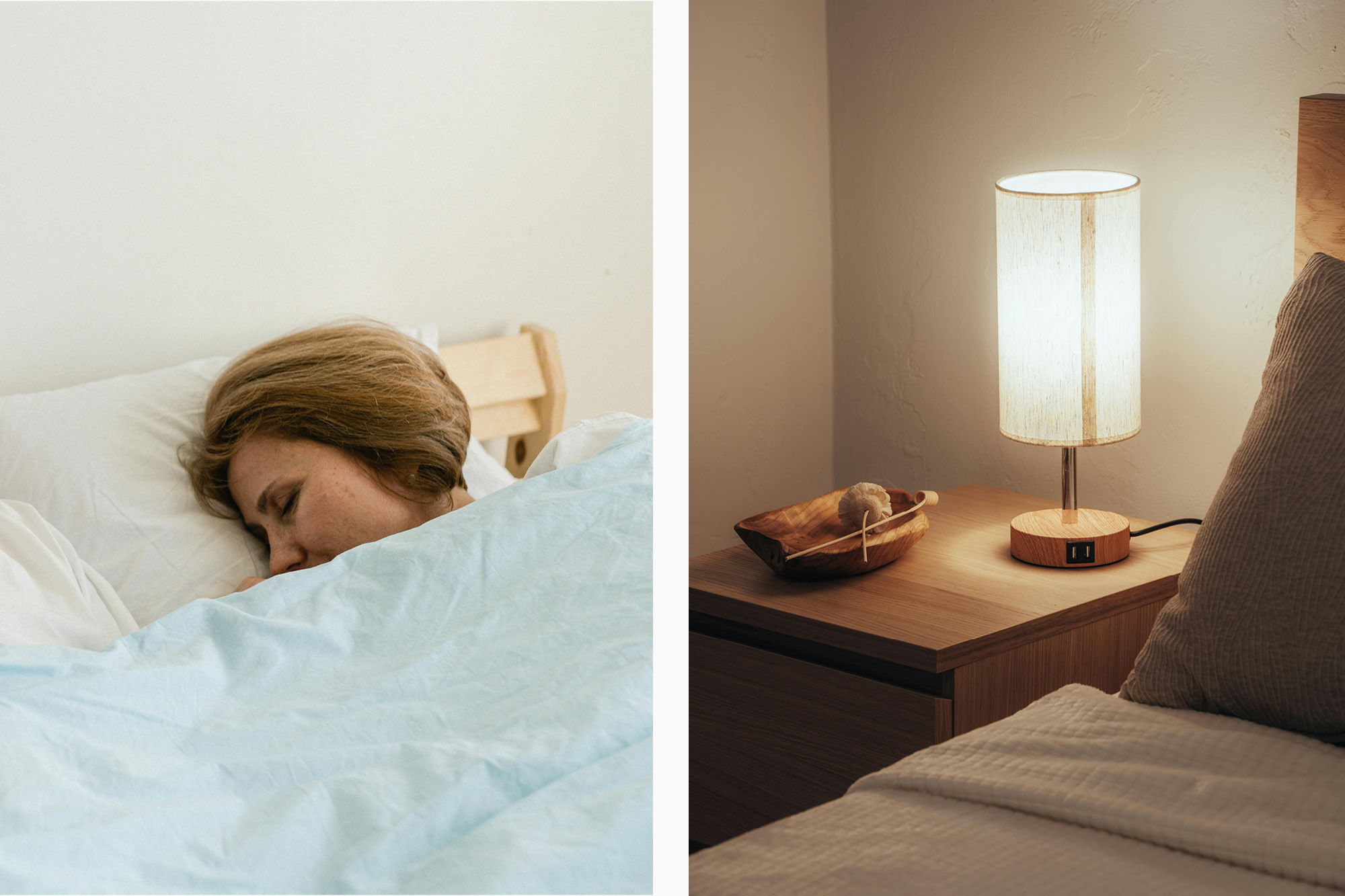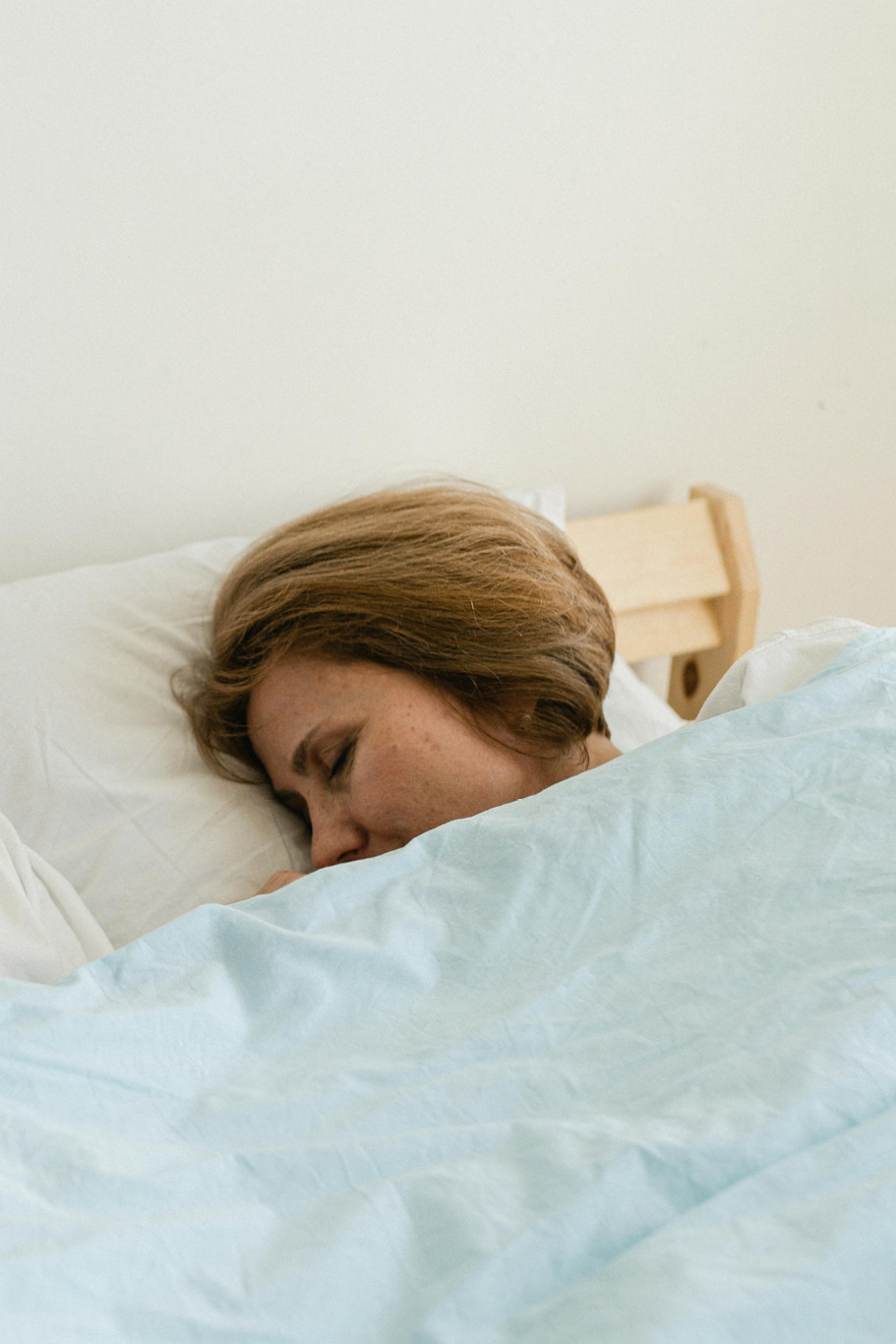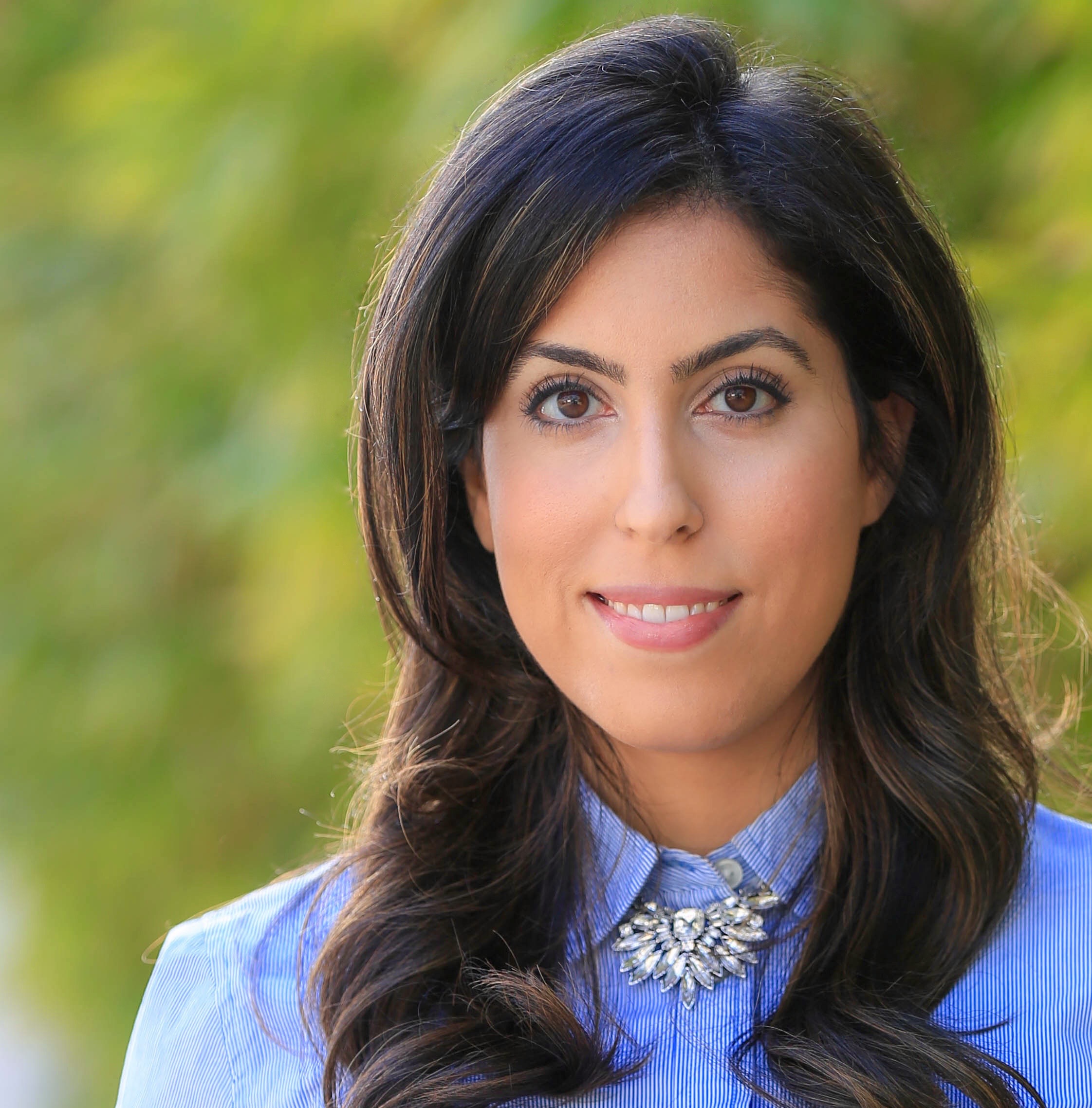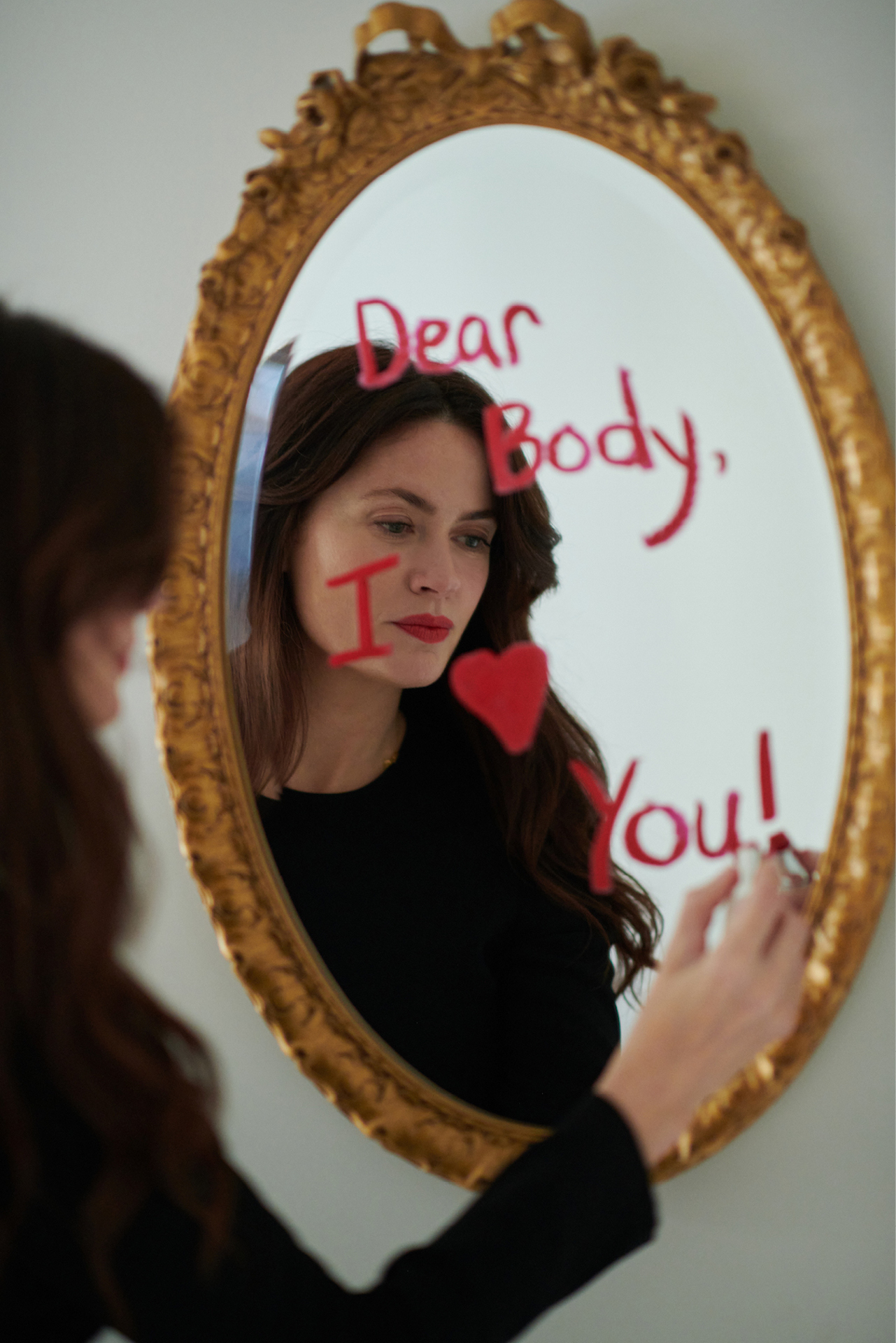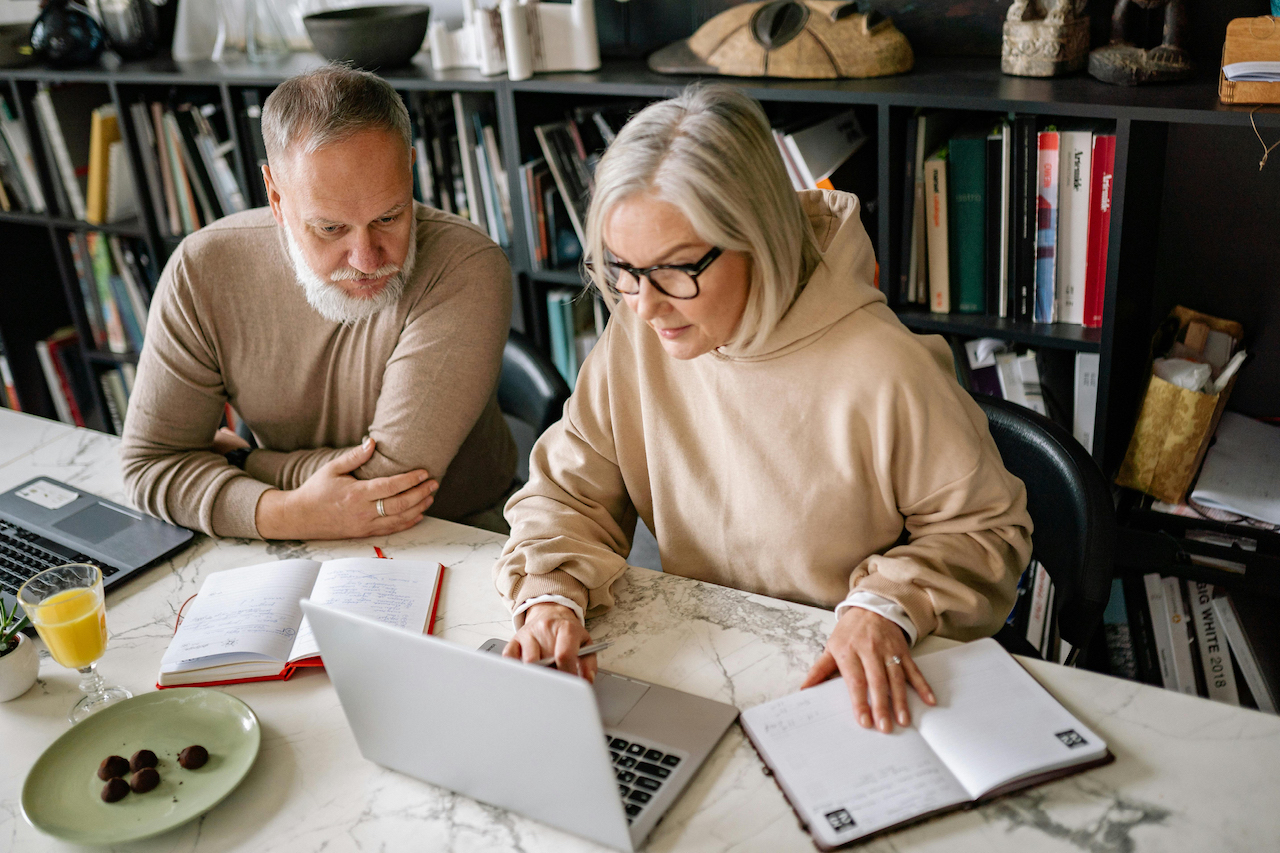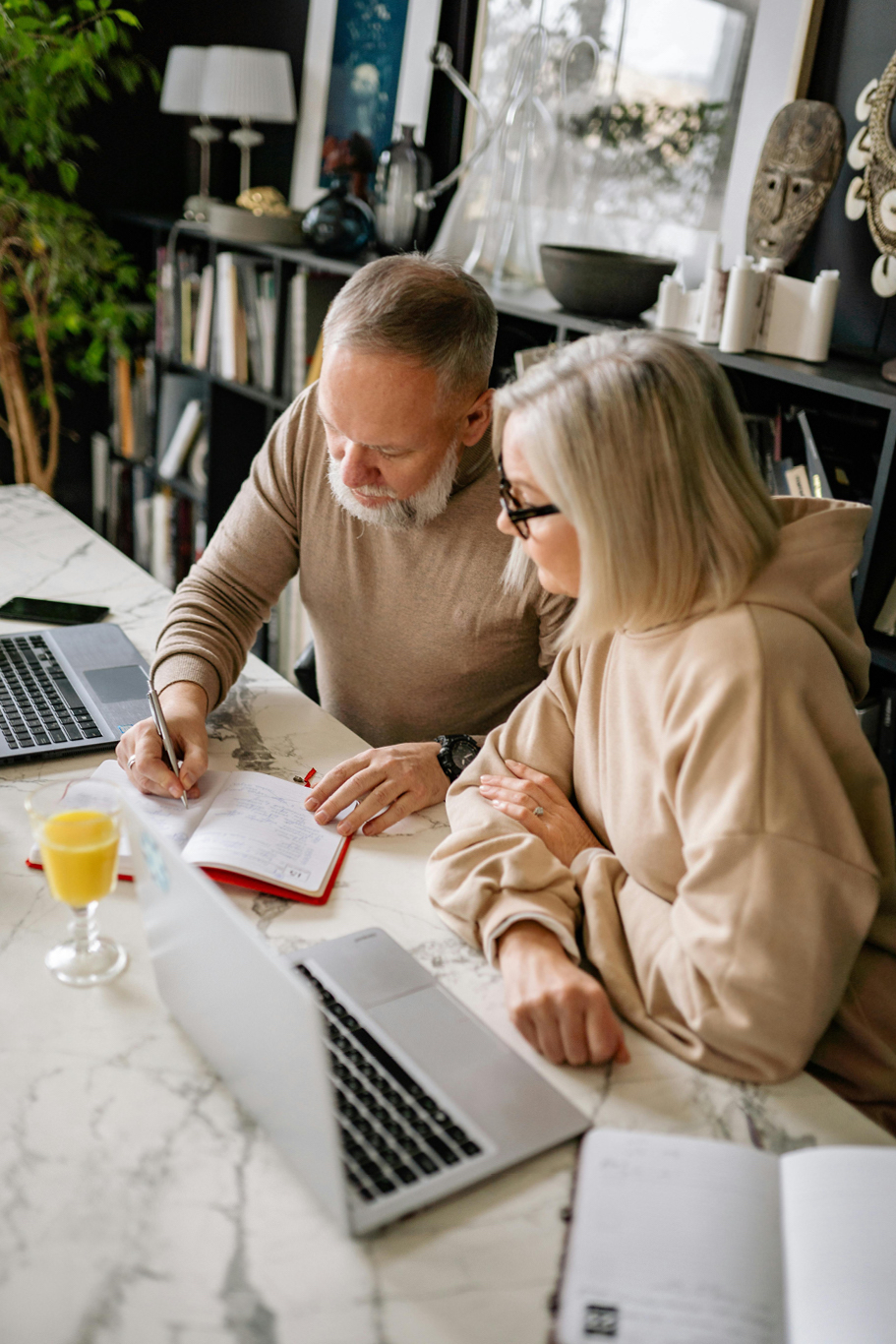Our sleep changes. Aging, hormones, the ebbs and flows of life are all pieces of the sleep puzzle that looks different for everyone. But there’s one thing all of us have in common at some point in our lives―we want more of it!
Sleep expert and clinical psychologist Dr. Nicole Moshfegh realized quickly that the issue of sleep was a common one, but that there weren’t a lot of people focusing on it. That’s when she decided to roll up her sleeves, narrow down the issue, and help find ways to sleep well and feel better. Since then, she literally wrote the book on improving your rest, The Book of Sleep: 75 Strategies to Relieve Insomnia.
Dr. Nicole answers our questions about why sleep is a key to living and aging well, how to get better at it, and common myths, tips, and tricks you need to know.
*
Sleep Well, Live Better?
Dr. Nicole (Dr. N): Sleep impacts every part of our body … immune functioning, cardiovascular health. It can affect hormones, which, in particular for women as they get older, can really throw things off for cell repair and recovery. Things like mood, emotional regulation, and cognitive functioning. Everything tends to work together in our bodies.
Why Aging Changes the Game
Dr. N: As we age, [neurotransmitters] change within the brain, and that affects hormones. It’s not that you need less sleep … you’re unfortunately less capable of producing as much sleep or good quality sleep. In addition, the older you get, the higher the chances of developing different medical illnesses, disorders, or chronic pain conditions. Medications to manage them can impact sleep. You also might be moving your body less. All these things can add up and impact your sleep. But, you’re not doomed―there are things that you can do to help yourself if you’re in that category.
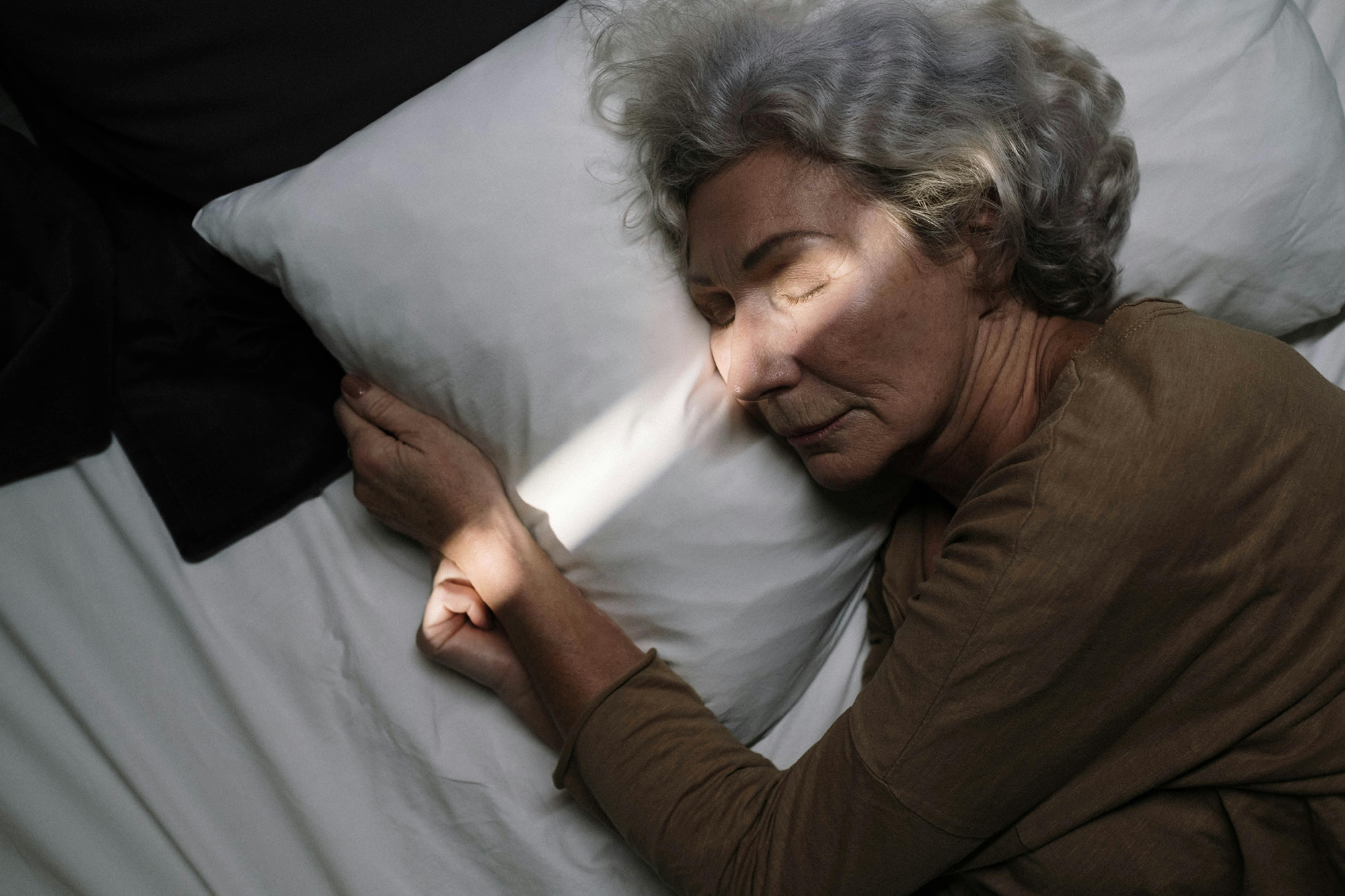
The Hormone Factor—Menopause & Beyond
Dr. N: For women approaching, in, or post menopause, there are hormonal changes that happen with progesterone and estrogen. The levels drop over time, affecting sleep quality and architecture … the different sleep stages. These hormonal shifts can cause symptoms like night sweats or hot flashes. Sometimes women will be at higher risk of insomnia, sleep apnea, or restless leg syndrome.
Sleep Apnea & How to Spot It
Dr. N: With sleep apnea, you’re literally not breathing for moments at a time and that can have a lot of really negative impacts on your health in the long run. That’s why we really want to treat it!
If you have somebody else in your household and they hear you snoring super loudly, that’s a good indicator of something apnea-related going on. Or, if you notice yourself waking up and gasping for air, or it sounds like you stop breathing, your airway is being obstructed. The chances of experiencing sleep apnea also increase with weight gain. These are the biggest warning signs as you get older.
The 8 Hour Myth
Dr. N: The biggest sleep myth is around sleep quantity. People think it needs to be 8 hours, but remember that quality is more important than quantity. Some people are lucky, and 5 or 6 hours is all they need. Most people need a little more, but if you’re the lucky one, embrace it.
How Much Do I Actually Need?
Dr. N: The typical range [for adults] is 6 to 9 hours. Write down basic notes about what time you fell asleep, what time you woke up, and then tally up. Maybe you averaged 7 hours, you felt great during the day and had all the energy you needed.
Let’s Get to It—Tips to Sleep Better
Cool It Down
Dr. N: If I were to give a blanket suggestion for what women in midlife could do, I would focus on sleep hygiene. Especially if you’re experiencing night sweats or hot flashes. Do you keep your room cool? Are there any cooling materials that you could use for bedding or sleepwear? There are self cooling mattresses or duvets that you could use.
Movement & Sunlight
Dr. N: Make sure you’re getting movement throughout the day, as much as your body allows without injuring yourself. Get some amount of sunlight in the morning (this one’s going to depend on your circadian rhythm). If you’re on the older end of the spectrum, your circadian rhythm shifts, and you might go to bed earlier and wake up earlier. In that case, the morning light is maybe not what you want to seek, but for other people who have a typical circadian schedule, early morning sunlight is good.
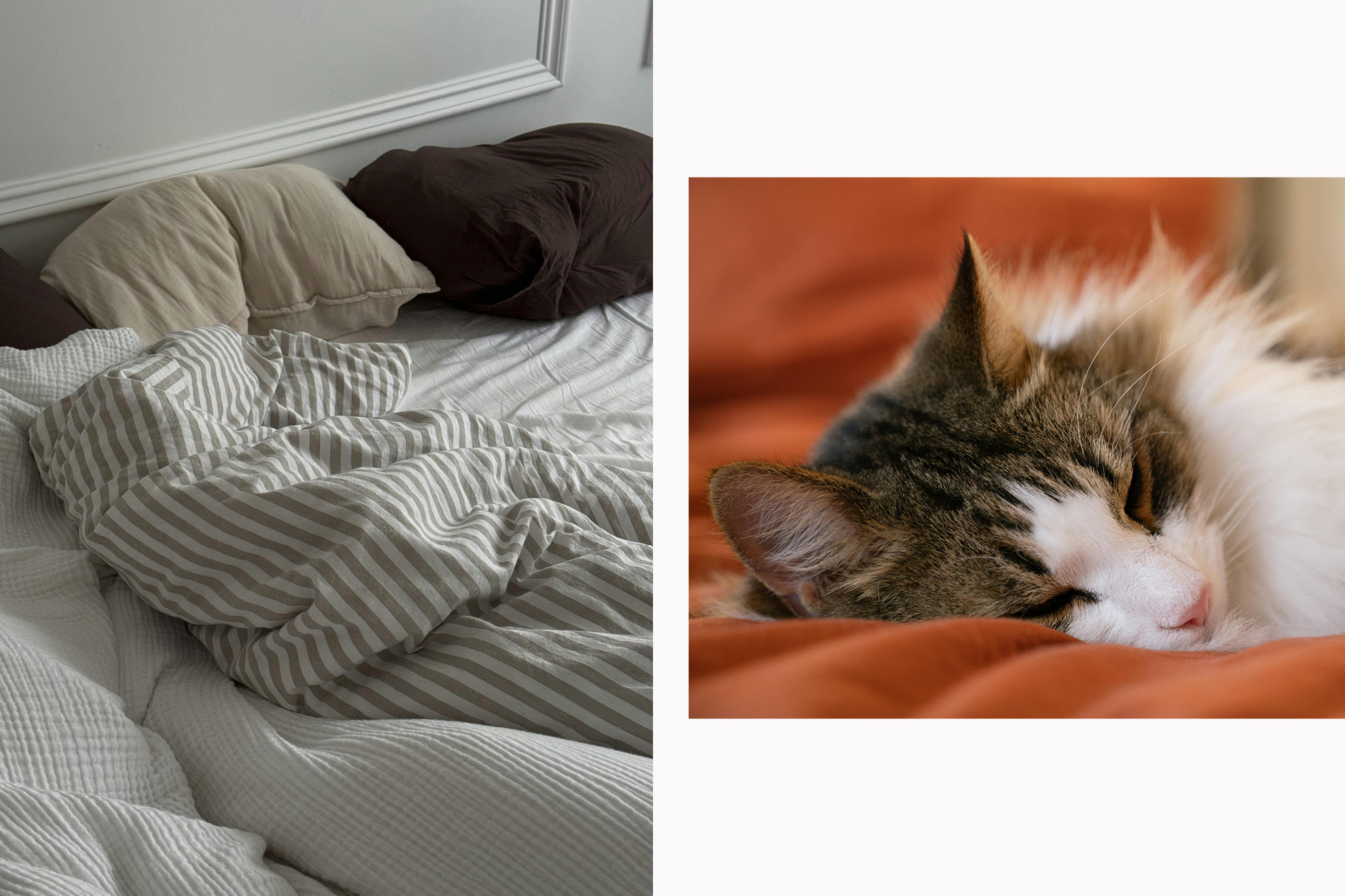
Relaxation Isn’t Just for Bedtime
Dr. N: Find a daily relaxation activity that you can engage in to manage distress and anxiety when it comes up. There’s so much changing, not just in your body, but overall. Maybe you’re empty nesting, or going through relationship challenges. Maybe you’re close to retirement or post-retirement. Being able to identify at least one relaxation tool that you can go to on a daily basis (whether it’s deep breathing, meditation, progressive muscle relaxation, or yoga) is important. Make it something you can stick to to keep your brain and body in balance.
Bedtime Stories, Body Scans, Meditation, & More
Dr. N: Listen to an audio book or sleep story. You could do a relaxation exercise, progressive muscle relaxation, mindful meditation, deep breathing, or guided imagery. You can’t force yourself to sleep. There’s nothing that you can do that will work automatically. It’s more about getting your mind in a different place and accepting the fact that you’re not sleeping right now. Take the pressure off, and then you can do whatever it is that works best for you. Even watching a show on TV. That’s totally fine, as long as you’re not holding the screen right up to your face (more on this later). When you find yourself nodding off again, then you can get quickly back into bed.
So, When Should I Relax?
Dr. N: Whether it’s morning, afternoon, or evening, whenever you can relax at a consistent time and it becomes a habit is ideal. But, we don’t want to use consistency as something that becomes stressful, thinking ‘I have to do this, otherwise I’m not going to be able to sleep!’ Keep it in balance. It’s not a pill you’re taking in order to produce sleep. The point is to bring your general levels of anxiety and stress down.
Insomnia & Midnight Wake Ups
Dr. N: Number one, figure out what is happening for you. Are you waking up because you have to use the bathroom? If that’s happening once or twice a night, it’s normal. If it’s happening more than that, then you’re probably drinking too many liquids too late in the evening. Could it be that you’re having a lot of thoughts come up in your mind, thinking about your to-do list, or worrying about something that happened? Could it be that you took a nap late in the day? Take a look at some of the reasons and track it over time to see what could be contributing.
If there’s something practical you could do like stopping drinking liquids at a certain time or limiting naps, try that. If you notice that you’re worrying about something in particular, give yourself an opportunity earlier in the day to work through some of that. Spend 10 or 15 minutes (not close to bedtime, at least 3 or 4 hours before) writing out your to-do list or anything that you’re worried about. Try to problem solve to reduce the chances of it coming up in the middle of the night. If that’s not helpful, you can also try to keep a notebook on your nightstand. If you notice the thoughts coming up, write them down so you’re not carrying it all in your mind.
You Can’t Force Yourself to Sleep
Dr. N: You can’t force yourself to fall back asleep; you will fall back asleep once you feel ready. If you notice you’re waking up in the middle of the night, the best thing to do is to get out of bed if you can. Do something low key and relaxing. A lot of people worry, ‘Is the light going to wake me up?’ You’re already awake. It’s not going to wake you up anymore. Do something to get your mind off the fact that you’re not sleeping. Once you feel sleepy again, then you can return to bed. Allow yourself to trust in that process and remind yourself, ‘Okay, maybe I’m not asleep now, but I’m going to catch the next wave when it comes.’ Again, if it’s a chronic issue, talk to someone about it. Don’t ignore it.
Counting Sheep—Give Your Brain a Break
Dr. N: You can give yourself some time to stay in bed and fall back asleep, say 15 or 20 minutes. Take some deep breaths to calm yourself down. Maybe you’ll fall back asleep naturally, but if you don’t, then get out of bed. If you’re noticing you’re having a lot of thoughts and it’s hard to get out of a thought loop, try some distraction strategies. Some people find it useful to use a mundane word, like the word ‘the’, and repeat it to yourself mentally. Try different frequencies and volume levels. It’s similar to counting sheep or doing mental arithmetic to get your mind off of the fact that you’re not sleeping. Remind yourself that you may not be sleeping, but at least your body is resting. You don’t want to add more pressure―that’s the biggest thing.
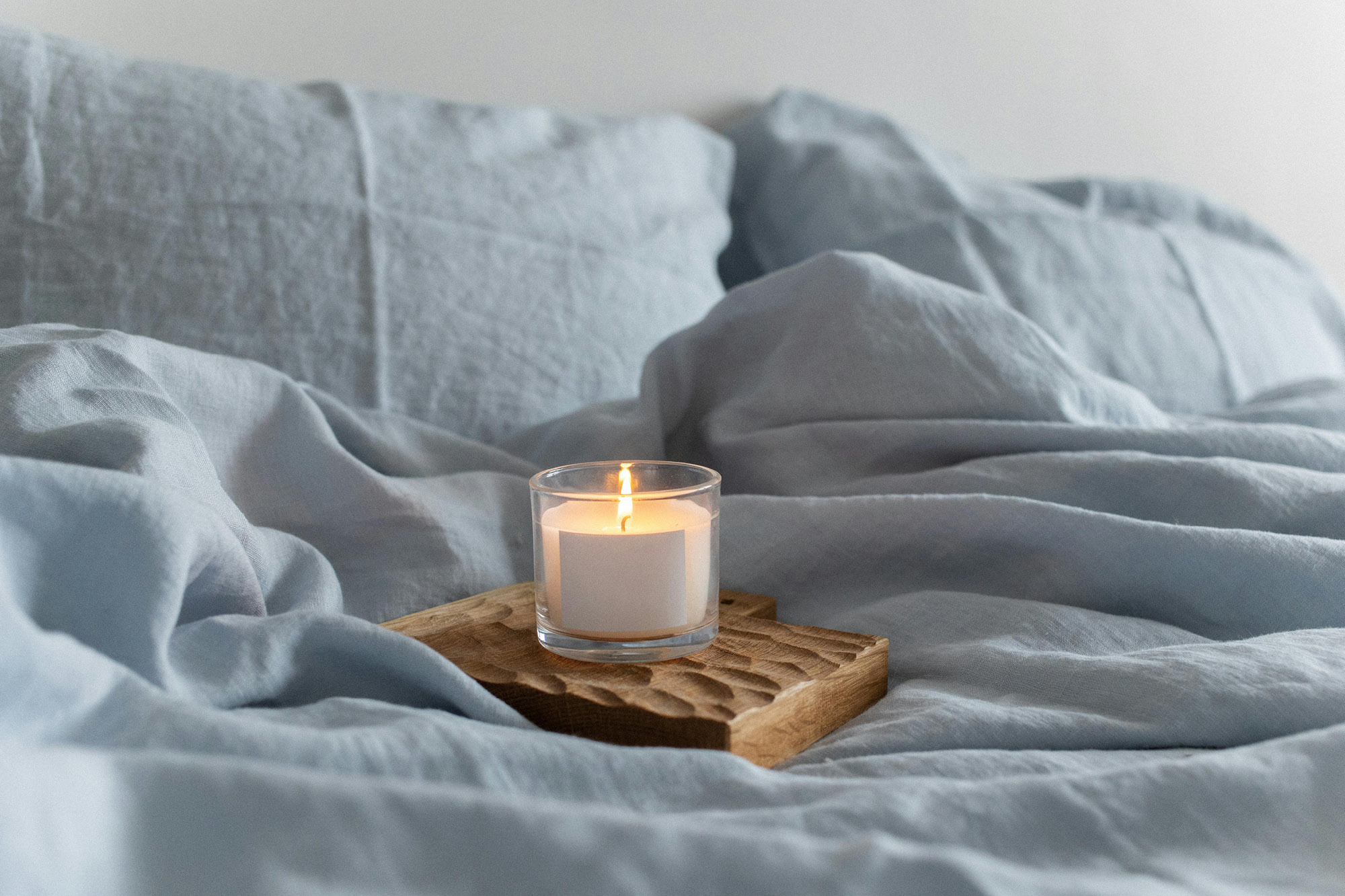
Sleep Allies & Enemies—the Low Down
The Caffeine Question
Dr. N: As with everything, [caffeine intake] depends on the person! Some people will metabolize caffeine faster than other people. Women, especially as we age, can become more sensitive to it. It’s important to track whether there have been changes over time, as it could contribute to more menopause symptoms. Generally no more than one cup [per day] is best. If you really need a second cup, try it with lunch and not past 1. You don’t need to be too rigid with your intake, but monitor how it’s affecting you.
How Long Until It’s Out of My System?
Dr. N: It’s about 8 hours for the half-life. So if you’re drinking caffeine during the day, that means for most people it’s still in your system when you’re trying to sleep. Experiment with cutting back or stopping a little bit earlier, and see if that helps you [sleep better]. And then maybe that’s what you continue to do if it works.
What About Alcohol?
Dr. N: Alcohol is a depressant, so it will, in general, help you to fall asleep faster. But, it affects your sleep architecture and quality, and reduces deep sleep. You’re not going to feel as refreshed and restored during the day; your body is not going to regenerate as well. We want to try to limit alcohol as much as possible, especially if it’s causing sleep problems or if you’re a woman in menopause or postmenopause who’s already experiencing some sleep issues. I’m not saying you can never drink again, but maybe look at how much you’re consuming and how often. If you can push it so that it’s not super close to bedtime, 3 or 4 hours before bed, that could give enough of a buffer so that it’s not impacting your sleep as much.
When to (& Not to) Reach for Melatonin
Dr. N: Our body naturally produces melatonin, the sleepy hormone. Some people take melatonin supplements, but many take it for the wrong reasons. It works on your circadian rhythm to determine the timing of your sleep. If you take melatonin at the right time, it will push your sleep window earlier, helping you to fall asleep sooner. For those experiencing jet lag, doing shift work, or with a circadian rhythm disorder, their sleep onset may be too delayed and they’re not able to feel sleepy until 2:00 – 3:00 am. In those cases, you can take small doses of melatonin at the correct time to help your circadian rhythm earlier. Of course, you always want to consult with your doctor about that before you’re taking anything.
Can I Use Melatonin for Insomnia?
Dr. N: Melatonin supplementation is really not going to help with insomnia. There’s a difference between people who are having circadian rhythm issues and people who have insomnia. Sometimes people have both. You really want to take a look at the problem. Are you a night owl that has to keep an early bird schedule? Are you someone who, if left to your own devices, would sleep from 2 am to noon, but then sleep fine? If you’re able to keep that schedule, then that probably means you have more of a circadian rhythm issue going on. But if you’re someone who kept that schedule and still couldn’t fall asleep, then there’s probably something else going on.
More on Supplements
Dr. N: The other piece around melatonin is the supplements themselves. They’re not FDA regulated, unfortunately. We don’t know how much is in them, or if there’s anything else added. You want to be careful with what you’re consuming! And I’ve seen so many big doses of melatonin―way too much. I recommend only using melatonin under your doctor’s supervision to make sure it’s not interfering with anything else you might be taking or any other health issues you have.
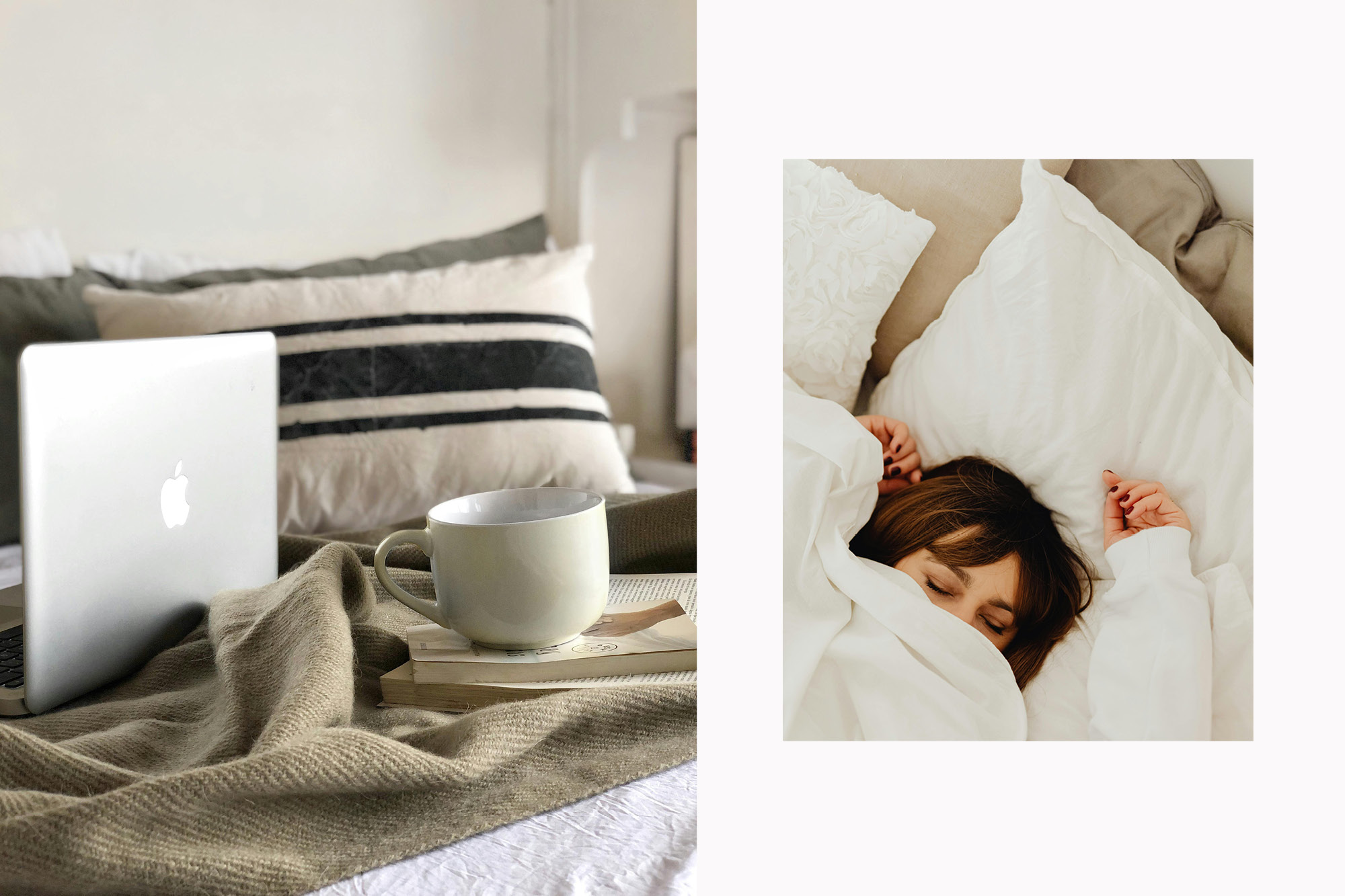
Up in the Air: Magnesium
Dr. N: There isn’t a lot of good research yet that shows that magnesium is automatically going to help you sleep better. There’s a lot of anecdotal evidence that it can help with certain things, and some people swear by it. That’s fine, as long as you’re not taking over the daily maximum amount. Consult with your doctor about it. If you think [magnesium] helps you, it’s not a big deal … but if you’re not having sleep issues, there’s no need to try to optimize your sleep even more. We get magnesium naturally from many of the foods we eat. Why not take a look at your diet first and see if you can get more that way naturally, rather than going for a supplement? If there’s a sleep disorder happening, we want to look at the CBT for insomnia first before we go to any supplementation. Let’s go to evidence-based strategies before we jump to that. Overall, it might add a little bit to your better sleep, but it’s not going to be a magic pill.
The Grinding Issue
Dr. N: A dentist would be better suited at specifically going into this, but again, try to figure out why it’s happening for you. Older women are more prone to developing sleep apnea, and some find that after an apnea episode they might start grinding their teeth. Address the sleep apnea if it’s there, because that could be very dangerous. For techniques around teeth clenching, you could try jaw relaxation or general relaxation strategies mentioned before. Many find that anxiety and tension can contribute to it. Make sure there isn’t something else going on.
Am I Spending Too Much Time in Bed?
Dr. N: Don’t spend too much time in bed if you’re awake, or even for those nightly relaxation routines before bed. Sex can be the exception to that, of course. The longer you’re in bed and you’re awake, anxious, or worried, the more your bed gets paired or associated with not sleeping. That can contribute to longer-term problems.
Avoid napping and dozing during the day if you’re having trouble sleeping. If you’re having difficulty with sleep quality and spending too much time in bed, that could be preventing you from building up enough sleep drive. Maybe you’re spending 10 hours in bed hoping to produce 8 to 9 hours of sleep, but you’re only getting 6 or 7. That’s too much time spent in bed. We want to try to shift that, but it can be counterintuitive. A lot of people think, ‘I couldn’t sleep last night, so I’m going to go to bed early’ or ‘I’m going to let myself sleep in.’ Those things actually perpetuate the problem. Take a look at those behaviors and tighten the schedule up to help improve things.
So, What Can I Do in Bed?
Dr. N: If you’re not having sleep problems and you’re not worried about it, go ahead and read or do other activities in bed! But if you are consistently having sleep issues, don’t do anything else there. Go somewhere else in your home to unwind. Once you feel sleepy, you can get into bed.
Are Screens Ruining My Sleep?
Dr. N: The reason why a lot of people, especially in recent years, have become nervous about screens is because of how it impacts melatonin production in the brain. [Melatonin] is what controls the timing of your sleep, tells you when it’s time for bed, or time to be alert. It works primarily off of sunlight, although other things can affect it as well. But every morning when you get up and start our day, we get some sunlight. It resets the circadian rhythm of your brain and tells you it’s time for a new day. If you’re getting too much light exposure, especially sunlight or a similar spectrum (that blue light which we get from our devices and our screens), it can trick your brain into thinking it’s still daytime. It can suppress melatonin production in the brain and body, delaying sleep onset.
Try to avoid really bright screens at least like an hour or two before bed. For someone who has delayed onset, maybe they’re not falling asleep until 2:00 -3:00 am, their circadian rhythm is a lot more like a night owl or an evening type. They really would want to pay attention to how much light they’re getting in the evening, even 3 hours before limiting how much light you’re exposed to. For early bird (and typically as we get older, our circadian rhythm shifts and we start getting up earlier and going to bed earlier), it doesn’t affect them as much. It’s not that it won’t affect them at all, but they’re probably going to want to get more light in the early evening, so that they’re not going to bed super early. It really depends on the person.
There’s No Rule
Screens are not the end of the world. If you’re watching something an hour before bed and if it relaxes you, and if you’re not having sleep issues, don’t worry about it. Don’t create a problem where there is none! Of course, if you’re watching really emotionally-laden content and you wake up thinking about it or it delays your sleep onset, then you might want to shift things. But there’s no blanket, hard-and-fast, ‘You must do this, and that’s the only way you’re gonna sleep’ rule.
When to Get Help
Dr. N: If you’re having chronic issues with sleep, meaning trouble sleeping at least 3 nights a week or more for a few months, then don’t ignore or suffer through it. Reach out to your health care provider, because there are so many people that can help you and give you evidence-based tools.
Live well and age better with your weekly 10-minute wellness habit. Join Movement Living to get your free wellness newsletter, delivered every Monday.
Dr. Nicole Moshfegh is a licensed clinical and health service psychologist and the author of The Book of Sleep: 75 Strategies to Relieve Insomnia. As the Founder and Director of We Rise Psychology in California, she specializes in helping individuals navigate sleep challenges, anxiety, stress, and burnout. Dr. Moshfegh completed her clinical training at UCLA, where she also taught and mentored medical and psychology graduate students. Passionate about mental health advocacy, she actively engages with the media, sharing her expertise on news outlets, podcasts, and magazines to raise awareness and promote well-being. Visit her website here.
This article is for informational purposes only, even if and regardless of whether it features the advice of physicians and medical practitioners. This article is not, nor is it intended to be, a substitute for professional medical advice, diagnosis, or treatment and should never be relied upon for specific medical advice. The views expressed in this article are the views of the expert and do not necessarily represent the views of Movement Living.
